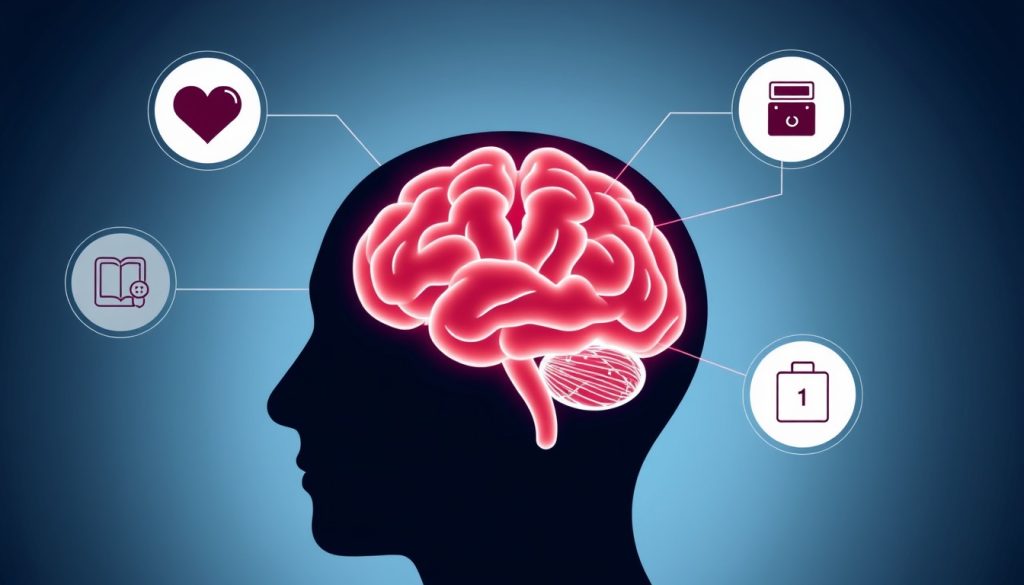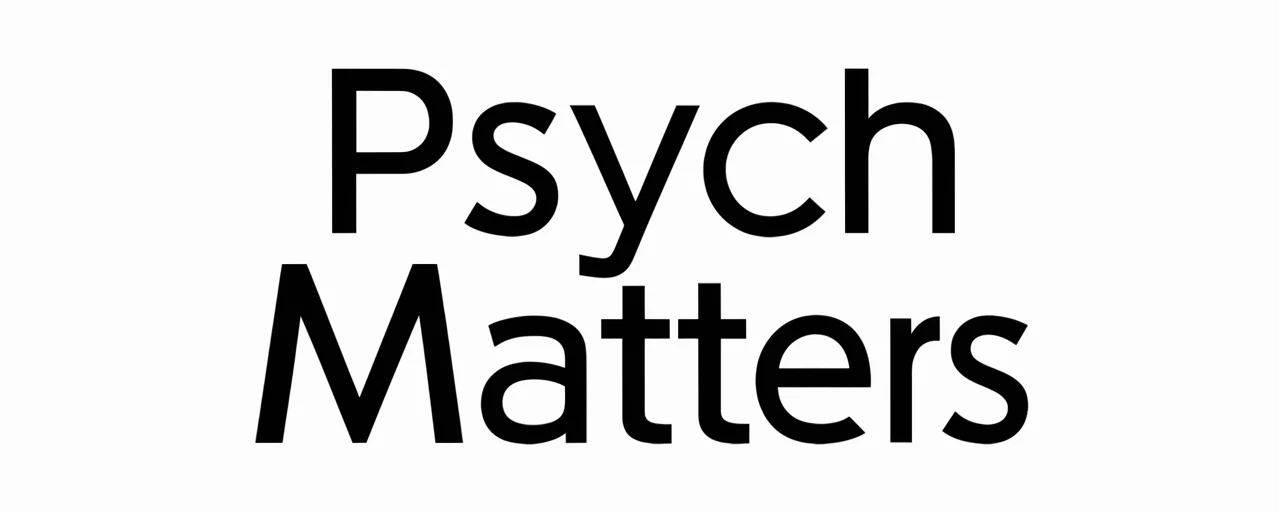The Mind’s Influence: Psychological Factors Shaping Health, Learning, and Consumer Behavior

In our increasingly complex world, the power of the mind extends far beyond our thoughts and emotions. Psychological factors, including our health, learning abilities, and consumer behaviors, are crucial in shaping our lives. This article delves into how our mental states and processes influence these three vital areas of human experience, exploring recent research, practical applications, and the interconnections between these domains.
Introduction
The human mind is a powerful force that shapes our experiences and interactions with the world around us. From the way we perceive and manage our health to how we acquire knowledge and make purchasing decisions, psychological factors are constantly at play. This article will explore:
- How our mental state impacts our physical health and well-being
- The role of psychological factors in learning and education
- The influence of psychology on consumer behavior and decision-making
Understanding these connections allows us to develop strategies to improve our health, enhance our learning, and make more informed consumer choices.
The Psychological Impact on Health
Our mental state profoundly affects our physical well-being, often in ways we might not immediately recognize. Research has shown that psychological factors can significantly influence our health outcomes, both positively and negatively.
Subjective Well-being and Health Outcomes
One of the most intriguing connections between psychology and health is the relationship between subjective well-being and physical health. As Rokach (2019) notes:
“Individuals who are satisfied with their lives and who experience frequent positive emotions – that is, individuals with high levels of subjective well-being … – not only feel good, but may also have better health outcomes.”[^1]
This suggests that maintaining a positive outlook and cultivating happiness may benefit our physical health. But what does this mean in practice?
- Stress reduction: Positive emotions can help lower stress levels, reduce inflammation, and improve immune function.
- Better health behaviors: People with higher subjective well-being are more likely to engage in health-promoting behaviors like regular exercise and healthy eating.
- Improved cardiovascular health: Positive psychological states have been linked to lower blood pressure and reduced risk of heart disease.

The Impact of Psychological Distress on Physical Health
On the flip side, psychological distress can have detrimental effects on our health. This is particularly evident in situations of extreme stress or trauma. Havenaar & Brink (1997) concluded:
“It is concluded that toxicological disasters may have profound effects on subjective health, especially on symptom reporting, and on a number of psychophysiological parameters.”[^2]
This finding highlights how traumatic events can lead to both perceived and actual physical health issues. Some key implications include:
- Increased symptom reporting: People experiencing psychological distress may be more likely to notice and report physical symptoms.
- Altered physiological responses: Stress can lead to heart rate, blood pressure, and immune function changes.
- Long-term health consequences: Chronic stress and trauma can contribute to the development of various health conditions, including cardiovascular disease and autoimmune disorders.
Psychological Factors in Chronic Disease Management
Psychological factors can play a crucial role in disease management and quality of life for individuals living with chronic diseases. A study by Zarotti et al. (2019) on motor neuron disease (MND) found:
“The findings suggest that the nutritional management of pwMND should be mindful of factors such as the impact of distress at the time of diagnosis, the availability of clear information on nutrition and MND, as well as the importance of illness perceptions and coping strategies.”[^3]
This research emphasizes the importance of addressing psychological aspects in treating and caring for chronic conditions. Key considerations include:
- Emotional support at diagnosis: Providing psychological support when delivering a diagnosis can help patients better cope with their condition.
- Clear communication: Ensuring patients have access to clear, understandable information about their condition and treatment options can reduce anxiety and improve adherence to treatment plans.
- Developing coping strategies: Teaching patients effective coping mechanisms can improve their ability to manage their condition and maintain a higher quality of life.
Psychological Factors in Learning
The process of learning is deeply intertwined with our psychological state. Various mental factors can either enhance or hinder our ability to acquire and retain knowledge.
Mood and Affect in Online Learning
In the increasingly digital world of education, understanding how psychological factors influence online learning is crucial. Das (2021) investigated this area:
“The dimensions we investigated in this study were students’ mood, affect, motivation, and experience of using an Online Learning Tool.”[^4]
This research highlights the importance of considering emotional and motivational factors in designing and implementing online learning tools. Some key findings and implications include:
- Positive mood enhances learning: Students in a positive mood tend to be more engaged and receptive to new information.
- Motivation is key: Intrinsic motivation, or the desire to learn for personal satisfaction, strongly predicts success in online learning environments.
- User experience matters: The design and usability of online learning platforms can significantly impact students’ emotional state and, consequently, their learning outcomes.

Psychological Barriers in Language Learning
Language learning, in particular, is heavily influenced by psychological factors. Thu (2022) observed:
“Speaking English is one of the most difficult abilities for EFL students since there are many factors, both external and internal that condition the learners’ will and skill to perform orally.”[^5]
This insight reminds us that language learning is not just about vocabulary and grammar, but also about overcoming psychological barriers. Some key considerations include:
- Anxiety reduction: Creating low-stress environments can help reduce language anxiety and improve performance.
- Building confidence: Providing opportunities for successful communication can boost learners’ self-efficacy.
- Cultural sensitivity: Understanding and addressing cultural differences can help learners feel more comfortable using the target language.
The Multifaceted Nature of Learning Competence
Learning is a complex process influenced by a variety of factors. Sarkar et al. (2020) emphasized this complexity:
“This paper highlights the various factors like social, linguistic, psychological factors that affects the learning competence of the learner.”[^6]
This holistic view of learning competence underscores the need for educators and learners to consider a wide range of influences on the learning process. Key aspects include:
- Social factors: Peer interactions, classroom dynamics, and social support can significantly impact learning outcomes.
- Linguistic factors: Language proficiency, exposure to the target language, and linguistic distance between native and target languages all play a role.
- Psychological factors: Motivation, learning styles, cognitive abilities, and emotional states all contribute to learning competence.
Psychological Influences on Consumer Behavior
Consumer behavior is another area where psychological factors play a significant role. Understanding these influences is crucial for both businesses and consumers.
E-Learning Adoption and Psychological Factors
In the context of e-learning as a consumer product, Herath et al. (2015) found:
“The results showed that in order to adopt to the e-learning system, the most important factors are e-learning confidence and e-learning training not the e-learning readiness.”[^7]
This finding highlights the importance of building consumer confidence and providing adequate training in adopting new technologies. Implications include:
- Focus on building confidence: Providers should prioritize strategies that boost users’ confidence in using e-learning systems.
- Importance of training: Offering comprehensive training can be more effective than assuming users are ready for the technology.
- Addressing psychological barriers: Identifying and addressing users’ fears or hesitations about e-learning can improve adoption rates.

Emotional States and Consumer Behavior During Crisis
The COVID-19 pandemic provided a unique opportunity to study consumer behavior under stress. Crosta et al. (2021) observed:
“Consumer behavior toward necessities was predicted by anxiety and COVID-related fear, whereas consumer behavior toward non-necessities was predicted by depression.”[^8]
This research reveals how different emotional states can drive different types of consumer behavior during crises. Key insights include:
- Anxiety drives essential purchases: People tend to stock up on necessities when feeling anxious or fearful.
- Depression influences non-essential spending: Feelings of depression may lead to increased spending on non-essential items, possibly as a coping mechanism.
- Emotional awareness in marketing: Businesses should be mindful of consumers’ emotional states when developing marketing strategies, especially during crises.
The Shift Towards Bounded Rationality
Traditional economic theory often assumed that consumers make purely rational decisions. However, recent research suggests a more nuanced view. As Leonov (2023) notes:
“As a result, there is a shift from the theory of rational behavior to the theory of bounded rationality to explain consumer choices.”[^9]
This shift recognizes that consumers don’t always make perfectly rational decisions but rather are influenced by various psychological factors. Implications include:
- Cognitive biases: Understanding common biases like anchoring or loss aversion can help explain consumer behavior.
- Emotional influences: Recognizing the role of emotions in decision-making can lead to more effective marketing strategies.
- Social factors: Considering the impact of social norms and peer influence on consumer choices is crucial.
Conclusion: The Interconnected Nature of Health, Learning, and Consumer Behavior
As we’ve explored, psychological factors are crucial in shaping our health outcomes, learning experiences, and consumer behaviors. These areas are not isolated but deeply interconnected:
- Health and Learning: Our mental and physical health can significantly impact our ability to learn and retain information.
- Learning and Consumer Behavior: Our knowledge and learning experiences shape our consumer choices and decision-making processes.
- Consumer Behavior and Health: Our purchasing decisions, particularly related to food, healthcare, and lifestyle products, directly impact our health.
By understanding these connections, we can develop more holistic approaches to improving our overall well-being, enhancing our learning experiences, and making more informed consumer decisions.
Practical Applications
- For individuals:
- Practice mindfulness and stress-reduction techniques to improve both mental and physical health.
- Recognize your emotional state when making purchasing decisions to avoid impulsive buying.
- Create a positive learning environment that addresses both cognitive and emotional needs.
- For educators:
- Incorporate strategies to address students’ psychological well-being in curriculum design.
- Recognize the impact of emotions on learning and create supportive classroom environments.
- Teach students about the psychological factors influencing consumer behavior to promote financial literacy.
- For businesses:
- Develop marketing strategies that consider the psychological state of consumers, especially during challenging times.
- Invest in user experience and confidence-building measures when introducing new technologies or services.
- Recognize the ethical implications of leveraging psychological insights in marketing and prioritize consumer well-being.
As we continue to navigate an increasingly complex world, recognizing and addressing these psychological factors will be key to improving outcomes in health, education, and consumer experiences. By nurturing our mental well-being and understanding its far-reaching effects, we can work towards healthier, more informed, and more fulfilling lives.

Resources
[^1]: Rokach A. Health, Illness, and the Psychological Factors Affecting Them. The Journal of Psychology. 2019;153(1):1-5. Link
[^2]: Havenaar J, Brink W. Psychological factors affecting health after toxicological disasters. Clinical Psychology Review. 1997;17(4):359-374. Link
[^3]: Zarotti N, Coates E, McGeachan A, et al. Health care professionals’ views on psychological factors affecting nutritional behaviour in people with motor neuron disease: A thematic analysis. British Journal of Health Psychology. 2019. Link
[^4]: Das S. Psychological Factors Affecting The Quality Of Online Learning. 2021;12:812-817. Link
[^5]: Thu HNT. PSYCHOLOGICAL FACTORS AFFECTING ENGLISH SPEAKING SKILLS AMONG VIETNAMESE STUDENTS. Journal of Science Social Science. 2022. Link
[^6]: Sarkar K, Debnath S, Bhattacharya DM, Das S. Communicative Competence and Various Factors Affecting Learning. International Journal of English Learning and Teaching Skills. 2020. Link
[^7]: Herath C, Thelijjagoda S, Gunarathne W. Stakeholders’ psychological factors affecting E-learning readiness in higher education community in Sri Lanka. 2015 8th International Conference on Ubi-Media Computing (UMEDIA). 2015:168-173. Link
[^8]: Crosta AD, Ceccato I, Marchetti D, et al. Psychological factors and consumer behavior during the COVID-19 pandemic. PLoS ONE. 2021;16. Link
[^9]: Leonov Y. Analysis of the Influence of Psychological Factors on Consumer behavior and the Decision-making Process. Economic Affairs. 2023. Link







